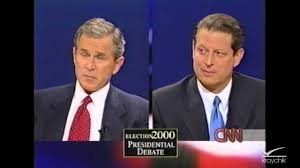Bookmark1995
Banned
I like this TL, but I do contest the idea of Ross Perot endorsing anybody.
Maybe he might find Donald Trump a worthy successor, but I also believe he never really wanted to create a sustainable political party. He said he wouldn't run in '96, but jumped back in after Richard Lamm declared his own candidacy.
In other words, I think Perot would be too controlling to let another famous person overshadow him and succeed where he failed.
Maybe he might find Donald Trump a worthy successor, but I also believe he never really wanted to create a sustainable political party. He said he wouldn't run in '96, but jumped back in after Richard Lamm declared his own candidacy.
In other words, I think Perot would be too controlling to let another famous person overshadow him and succeed where he failed.




